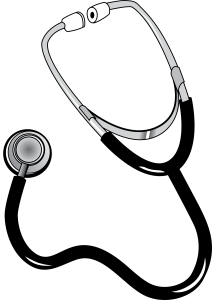By Elizabeth Baker
Politicians continue to struggle with the implementation of the Affordable Care Act, also known as “Obamacare,” after enrollment in the new health care system began on Oct. 1. Despite the wide spread media coverage the Affordable Care Act has received over the past few years, and especially recent weeks, the question on most peoples mind remains: How will this new law affect me?
Unfortunately, the answer is not simple. In fact, the Affordable Care Act contains ten titles (sections) that span over 1,000 pages, but most of its key provisions are contained in the first title, which is about 140 pages long, according to obamacarefacts.com.
Even Kelly S. Campbell, director of the Marquette University Neighborhood Health Clinic, has trouble making sense of the new health care system. “I have worked for a health insurance company as a nurse, and I’m still confused, ” Campbell says. “How are common citizens and patients supposed to understand? It worries me.”
In signing this bill to law in March of 2010, President Obama’s goal was to give more Americans access to affordable, quality health insurance and to reduce the growth in health care spending in the U.S.
“It all has really been coming to a head,” Campbell says. “Things we thought were true about the act are not, and now they’re trying to rectify the fact that people are losing insurance. Few people have been able to access the system, and people are shocked by the cost.”
Campbell says that the staff at the clinic has been helping patients navigate this complex system to the best of their abilities. Healthcare.gov, the official information source and application for the health insurance marketplace, has trained several individuals in each state to educate citizens and health care entities about enrollment. These professionals are called Certified Application Counselors (CAC).
Jessica Coburn, a registered nurse and graduate student in Marquette’s College of Nursing, is a CAC in Jefferson County. “I assist individuals with enrollment in the marketplace,” Coburn says. “Typically, they come to see me if they have a lot of questions or are unsure about where to start on the healthcare.gov website. As for providers, I provide tips for guiding their patients to appropriate resources. Most providers just want to know where to send their patients for trustworthy resources.”
In regard to the future of her career and the careers of those in the medical field, Coburn says “nurses are patient advocates, and this law will mean increased access to healthcare for our patients.” She adds that ideally, there will be an increased number of patients receiving timely and appropriate care in the outpatient setting due to insurance coverage, relieving some of the congestion in emergency departments.
A few noticeable changes have already happened as a result of this legislation, such as young adults being able to stay on their parents’ policies up to age 26. Coburn says that this is a huge advantage for students who are graduating and entering an unsteady job market. “For generations of graduates, finishing school meant that you were dropped from your parents’ policy and had to quickly find a job with coverage, pay a lot for a private policy, or go without health insurance,” she says.
This important piece of the Affordable Care Act affects college graduates as they enter the job market. Campbell wonders if it is going to have an effect on graduates’ choices of where to work. “If a company offers traditional commercial insurance with co-pays and deductibles, I think that most people will go with what they know and understand,” she says.
According to Ronda Hughes, Associate Professor in the College of Nursing, the most important thing for graduating college students to do is read multiple sources about the new policies and ask a lot of questions.
She says that future graduates must make sure they know the annual income of the jobs they get and how that relates to the federal poverty limit. Individuals can take part in the offered healthcare exchanges and benefits based on where their income lies in reference to this standard.
Hughes feels that the biggest misunderstanding right now is that every American will presumably have health insurance; but this will not be the case. There are 25 million people who still will not receive it under the new law because people don’t know what they are supposed to do or what their income needs to be.
“It is difficult to explain,” Hughes says. “In my health policy class, we have gone really deep into the details including fines, copays, deductibles, and more … It is critical to read a lot and ask a lot of questions because health insurance is necessary.”
People, especially young individuals, often feel that they do not need health insurance, but one car accident can change that, Hughes says. “Health insurance bills are the number one cause of bankruptcy in our country,” she adds. “This is an important distinction that can’t be ignored.”
With all of the recent changes and difficulties occurring with the introduction of this health care plan, “everything is in a holding stance right now,” says Hughes. “No one is sure when to make changes, there is a lot of confusion, and there will be some mistakes.”
Coburn says that the most confusing part of the Affordable Care Act is sorting fact from fiction. “There is plenty of media coverage, but the law is complex and cannot be explained in a sound bite,” she says.
Most individuals in the U.S. are not buying insurance using the marketplace, but the Affordable Care Act will still affect them because of its provisions that impact all insured people.
Companies that offered health insurance plans to their employees but now send employees to new health exchanges to decrease costs perfectly demonstrate this idea, according to Hughes.
For example, Walgreens dropped its health care benefits for employees and now gives them money for the Affordable Care Act. “This is a new and unfamiliar system for the employees,” Campbell says.
Although most citizens remain confused as to exactly how the Affordable Care Act will affect them, Coburn says that the most important thing for people to keep in mind with this new law is that the people who are benefitting most are Americans that are poor, ill or uninsured.
Campbell considers this as well, especially as director of the Marquette University Clinic for Women and Children. As a free clinic, they do not accept people with health insurance.
“These patients are incredibly poor. They cannot even afford a $4 co-pay for a prescription,” Campbell says. “It’s going to be interesting to see how it plays out for extremely impoverished people.”












